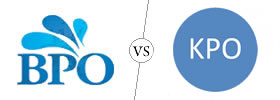Difference between Federal and Private Loans
Key Difference: The most basic difference between them is the fact that the federal loans are provided by the government, whereas the private loans are provided by organizations in the private sector, such as private banks, credit union, state agency, or a school.
 When it comes to loans, there are two main types. These are the federal loans and private loans. The most basic difference between them is the fact that the federal loans are provided by the government, whereas the private loans are provided by organizations in the private sector, such as private banks, credit union, state agency, or a school. Anyone who provides a loan is known as a lender.
When it comes to loans, there are two main types. These are the federal loans and private loans. The most basic difference between them is the fact that the federal loans are provided by the government, whereas the private loans are provided by organizations in the private sector, such as private banks, credit union, state agency, or a school. Anyone who provides a loan is known as a lender.
Usually, federal loans are better bets than private loans, as they often have lower rates of interest. Also, most federal loans have fixed interest rates, whereas the interest loans of private loans tend to fluctuate depending on the economic market. Federal loans may also wait a while before asking for repayment of the loan, where private loans usually require one to immediately start trying to repay the loan.
However, federal loans may have a cap on how much can people borrow, whereas private loans have to such cap; people can borrow as much as they need provided that they have the means to be able to pay off the loans.

Also federal loans usually do not require a cosigner to sign for the loan on your behalf, whereas in order for quality for a private loan, one may require a cosigner. There are various other differences between federal and private loans, including the fact that
Note: The information will vary depending on where you live and on the types of loans provided by the government and private sectors.
Comparison between Federal and Private Loans:
|
|
Federal Loans |
Private Loans |
|
Provided By |
Government |
Organizations in the private sector, such as private banks, credit union, state agency, or a school |
|
Repayment |
Some federal loans may differ asking for repayment until a few months, or years. |
Private Loans usually ask for repayment immediately, as soon as the month when the loan was approved. |
|
Regulation |
Federal loans are funded and tightly regulated by the federal government. |
Private loans are not subsidized by the government, and therefore are not regulated as closely. |
|
Cap |
Federal loans may often have a cap, which means they can only allow one person to borrow so much. |
Private loans usually do not have a cap, and borrowers can borrow as much as they want or need, as long as they have the means to repay them. |
|
Interest Rates |
Federal Loans usually have lower interest rates. |
Private Loans usually have higher interest rates than federal loans and these rates may differ depending on the type of loan, and the organization providing the loan. |
|
Variable interest rates |
In federal loans, the interest rate is usually fixed over the term of the loans. |
In private loans, the interest rates may fluctuate on a year to year basis, as depending on the market. |
|
Cosigner |
Usually do not require a cosigner |
May require a cosigner to qualify for a loan. |
|
Tax deductible |
Interest may be tax deductible. |
Interest may not be tax deductible. |
|
Deferment |
If you are having trouble repaying your loan, you may be able to temporarily postpone or lower your payments. |
Private loans may not offer forbearance or deferment options. |
|
Prepayment penalty fee |
There is usually no prepayment penalty fee |
There may be prepayment penalty fee |
|
Loan forgiveness program |
You may be eligible to have some portion of your loans forgiven if you work in public service. |
It is unlikely that any part of the loan will be forgiven. |
Image Courtesy: collegegirldai.com, tuition.io









Add new comment